Proposal to limit lending to second home buyers or more
The proposal to limit lending to buyers of second homes or more is receiving much attention, especially from short-term investors. This proposal is the content stated in the draft Resolution on the mechanism to control and restrain real estate prices that the Ministry of Construction sent to relevant ministries and branches for comments.
Specifically, the Draft outlines three market regulation contents including: Loan policy for home buyers, real estate transaction centers and development of affordable commercial housing. Regarding the loan policy for home buyers, the Ministry of Construction proposes that the Government require credit institutions to apply limits on loans for home purchases, except for social housing.
Specifically, for the second home buyer, it is expected that they will only be able to borrow up to 50% of the purchase contract value. For the third home buyer, the loan amount will not exceed 30%.
Along with the proposal to establish a Real Estate Transaction Center to publicize transactions and promote the development of affordable housing, the Ministry of Construction said that the Resolution is aimed at establishing a specific legal mechanism to control, regulate and gradually reduce housing prices to a level suitable for the income of the majority of people, especially the appropriate and middle income groups. The focus is on regulating the real estate market in a public and transparent manner, tightly controlling speculation and price manipulation.
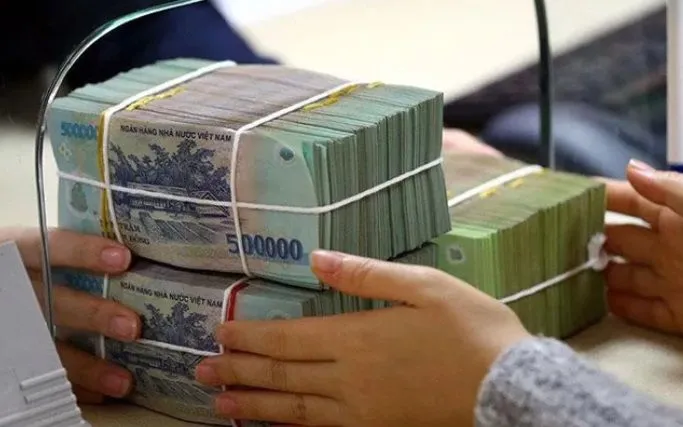
A proposal to limit lending to second-home buyers is gaining traction, especially among short-term investors. Illustrative photo.
Many conflicting opinions
According to the market, the maximum loan limit for buying a house depends on the type of real estate product and the regulations of each bank. Many investors of commercial housing projects are applying flexible policies, where buyers only need to pay 10 - 30% in advance. After that, the bank will disburse the remaining amount, meaning that buyers can borrow from 70 - 90% of the total price of the real estate product.
With such a huge benefit, the proposal to limit loans for second and more families is receiving mixed opinions. According to businesses, if applied, this policy will limit short-term investors - those who take advantage of bank loan programs to buy real estate for short-term trading. On the other hand, there are also opinions that the loan restriction policy can affect the group of people who need to buy real estate or invest in the long term.
As a long-time investor in the real estate market, Mr. Dinh Hoang Thang (Long Truong ward, Ho Chi Minh City) is investing in apartments for rent, thereby increasing his family's income.
He said the proposal to limit loans for second home purchases would help discourage short-term investors, especially speculators. If the policy is implemented, he would also proactively rebalance loans under 50% of the property value to suit his investment portfolio.
"When making a decision, we also have to calculate and consider how it will affect our investment portfolio. And clearly, this regulation will reduce the number of people and the motivation to own a second or third property, reducing speculation. In the long run, I think this will be good for society," Mr. Thang commented.

Proposal to limit lending to second home buyers or more has received mixed opinions.
Currently, Ms. Tran Thi Hong Hai (Tan Phu Ward, Ho Chi Minh City) is looking for a suitable real estate product to invest in the near future. This is the first time she has entered the market. Besides savings, loans are also quite important for young people like her. When she heard about the proposal to tighten credit for second home loans, she was worried because it could reduce access to investment products.
"In my opinion, this proposal also limits resources and support, as well as somewhat limits the product lines that I can search for, or somehow makes me more hesitant in looking for additional investments in the real estate portfolio," Ms. Hai shared.
Some businesses said that the real estate market is on the way to recovery. The supply of products is currently focused on the mid- and high-end segments, which are intended for investors. Meanwhile, the market is still lacking in the low-cost housing segment, serving people with real housing needs. Businesses believe that if credit loans for home purchases are restricted, it could affect liquidity in the market.
Mr. Tran Khanh Quang - General Director of Viet An Hoa Real Estate Investment Joint Stock Company said: "Currently, we see that in the real estate market, over 60 - 70% are investors, while the actual residents are only 20 - 30%. If we apply it too thoroughly, that is, limit loans for second and third homes and increasingly tighten credit, then clearly the market will be shocked."
Other opinions also said that the proposal to tighten credit for those who buy a second home or more does not clearly distinguish between those who buy for real residence and those who invest for long-term rental. In fact, there are cases where parents borrow money to buy a house for their children when they do not have enough financial conditions. Therefore, if this credit restriction is applied, it may affect the legitimate needs of many families today.
Comprehensive solutions to control housing prices in a sustainable way
The draft does not prohibit people from owning second or third homes. Here, the draft only regulates credit policy, meaning the State uses capital flow regulation tools to control speculation and financial risks. Experts assess that this is a direction in accordance with the provisions of law and international practice.
The proposed tiered credit policy does not affect people’s interests but aims to manage systemic risks. However, this needs to go hand in hand with more comprehensive solutions to control housing prices.
Data from research units has shown that the recent increase in housing prices is not mainly due to investment but due to a shortage of supply. The cause comes from legal problems, high land costs and construction investment costs. Therefore, investors will focus on high-end projects to seek profits.
For example, in Ho Chi Minh City, according to a report by Avison Young, the number of new apartment projects launched in the third quarter was mostly high-end and luxury apartments, with an average selling price of 125 million - 232 million VND/m2. This price has increased by 5-8% compared to the previous quarter.
Market research company Savills Vietnam believes that instead of choosing credit tools, policies need to focus on solving the problem of unblocking housing supply.
Ms. Gianh Huynh - Director of Savills Vietnam Research Department suggested: "We should reform project approval processes to speed up the progress of new projects in the market. Projects that are stuck should be resolved with special mechanisms. Unblock the supply problem, create a diverse supply, especially the supply of low-cost housing. When the supply is enough to meet demand, the market will self-regulate prices."
With the proposal of the Ministry of Construction, research units believe that intervening in credit limits can affect the independence of commercial banks. Because lending activities depend on the risk assessment process and lending criteria of each bank based on the borrower's payment ability.
In addition, determining how many properties the borrower owns is also a challenge because it requires connection or access to the real estate database system. While this data is still in the process of completion and will take a long time to apply in practice.
More efficient taxation?
Expressing his views on solutions to manage the real estate market, Mr. David Jackson - General Director of Avison Young Vietnam said that the taxation method would be more effective. Specifically, imposing higher personal income tax on second and third real estate, or real estate transaction tax based on holding time is a more feasible solution to limit resale, thereby reducing the incentive for speculation.
Agreeing with Avison Young, the Ho Chi Minh City Institute of Natural Resources and Environment Economics assessed that the draft needs to separate real estate market management and credit policy. Because the banking industry is on the path to eliminating credit room and has unlimited lending space. Therefore, if applying restrictions on loans for second home purchases or more, it may affect disbursement from the bank.
Dr. Pham Viet Thuan - Director of the Institute of Natural Resources and Environment Economics of Ho Chi Minh City proposed: "To limit it, I think we have to use tax rates based on the time of keeping the records. For example, if someone buys a property or wins an auction within 12 months, if they sell it, we will collect 20% of the selling price. On the contrary, if someone is over 36 months, we will collect 10% and over 60 months, we will collect 2% like now."
It can be seen that limiting speculation is a necessary step, but using credit tools requires a clear step-by-step roadmap. First of all, it is necessary to complete the database of real estate transactions to clearly identify who are investors, speculators and who are home buyers for real residence. From there, credit tools will be effective, helping the market develop in a transparent, clear and fair direction for all participants.
Recently, the Ministry of Construction proposed to create real estate codes and manage them on the information system. At the same time, it required organizations and individuals to provide home ownership information for integration into the National Information System from 2026. This proposal is stated in the draft Decree on the construction and management of databases on housing and the real estate market.
Accordingly, each real estate project will be automatically assigned a unique code, ensuring identification and no change throughout the data life cycle. The provincial specialized agency will initiate this code in the area at the time the project is approved.
The Ministry of Construction said the new regulation helps improve the quality of collected data, thereby making information transparent, regulating the market and meeting the legitimate needs of society.
Source: https://vtv.vn/chong-dau-co-kiem-soat-gia-bat-dong-san-siet-vay-hay-danh-thue-100251028152621733.htm


![[Photo] Flooding on the right side of the gate, entrance to Hue Citadel](https://vphoto.vietnam.vn/thumb/1200x675/vietnam/resource/IMAGE/2025/10/28/1761660788143_ndo_br_gen-h-z7165069467254-74c71c36d0cb396744b678cec80552f0-2-jpg.webp)

![[Photo] Draft documents of the 14th Party Congress reach people at the Commune Cultural Post Offices](https://vphoto.vietnam.vn/thumb/1200x675/vietnam/resource/IMAGE/2025/10/28/1761642182616_du-thao-tai-tinh-hung-yen-4070-5235-jpg.webp)


![[Photo] National Assembly Chairman Tran Thanh Man received a delegation of the Social Democratic Party of Germany](https://vphoto.vietnam.vn/thumb/1200x675/vietnam/resource/IMAGE/2025/10/28/1761652150406_ndo_br_cover-3345-jpg.webp)











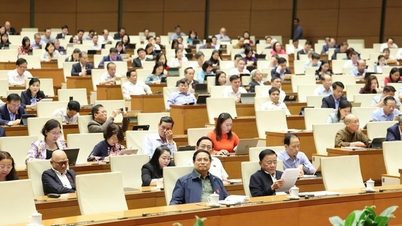

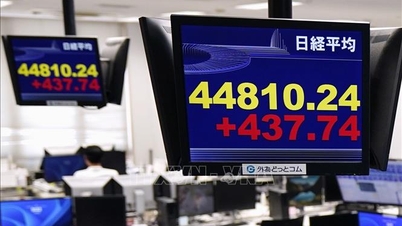


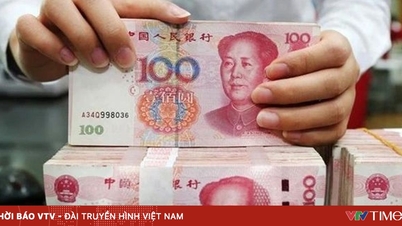










![[Photo] President Luong Cuong attends the 80th Anniversary of the Traditional Day of the Armed Forces of Military Region 3](https://vphoto.vietnam.vn/thumb/1200x675/vietnam/resource/IMAGE/2025/10/28/1761635584312_ndo_br_1-jpg.webp)


































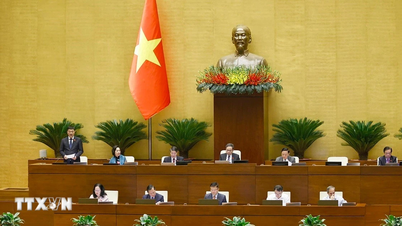
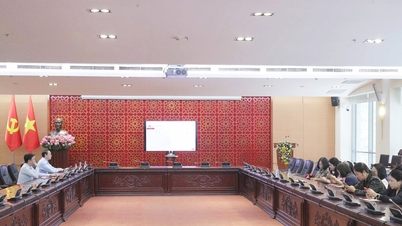















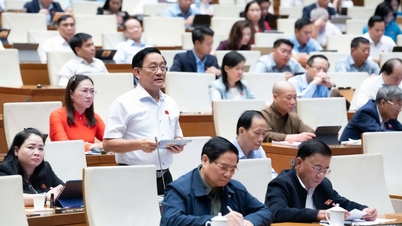




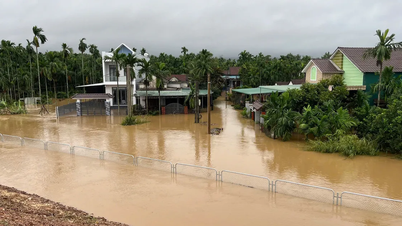


















Comment (0)